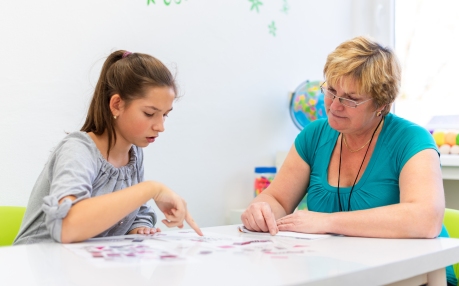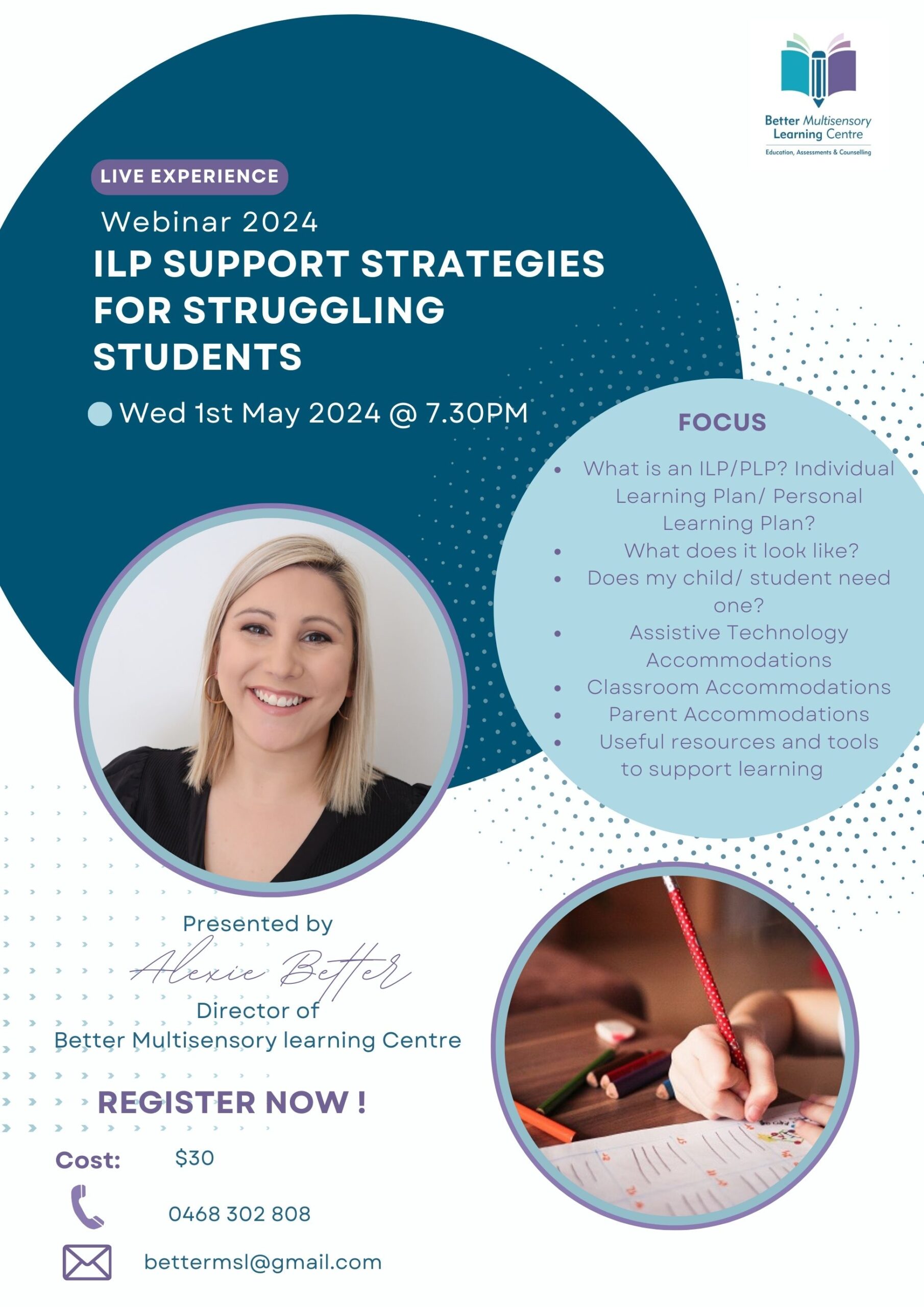Learning Difficulties Assessment Process

How We Conduct a Learning Difficulties Assessment
Learning difficulties are diagnosed with reference to the level of mastery attained in a given academic area by most children of the same age. These norms have been established through standardized testing and do allow for a range of below-average scores that do not constitute a learning disability.
Learning Difficulty Types that require a Learning Disability Assessment
Learning difficulties may be one of three types according to the DSM-IV (the Diagnostic and Statistical Manual of Mental Disorders). Learning difficulties may be due to developmental or speech disorders (poor articulation or use of language), academic skills disorders (reading, writing, arithmetic) or ‘other’ disorders relating to non-academic areas (coordination, attention, memory). Some additional problems may include a lack of organisation, trouble with task-sequencing or high distractibility.
The Four Step Process in Learning
Learning is a four-step process of receiving, integrating, retrieving and using information. The locus of any learning disability may exist in any of these steps and the type of information it affects will also play a part in how the disability manifests – for example, being unable to distinguish two similar sounding words reflects a ‘receiving’ problem, where an inability to look at a word on a page and say it out loud would indicate an ‘integrating’ problem.
It is important to realize that learning difficulties occur because of problems in the brain’s connections rather than a deficiency of the brain itself. For this reason, children with learning difficulties often have average or above average intelligence, but lack efficient neural processing which would allow them to reach their academic potential.
Depending on the type of learning disability, children may have problems in the area of verbal learning (spelling, reading, vocabulary, writing) or nonverbal learning (mathematics, motor, spatial, social, sensory). Most children with learning difficulties have problems in the verbal arena, which affects a great number of language tasks requiring expression and reception. Some additional problems may include a lack of organization, poor memory, trouble with task sequencing, inattention or high distractibility. Although remedial classes and tutoring may assist a child who has a learning disability, none of these solutions can target the source of the problem. The first step to diagnose them is through learning difficulties assessment.
Different types of learning difficulties and the need for a Learning Difficulties Assessment
A verbal learning disability entails problems with language tasks such as reading, writing, comprehension and spelling, and is a frequently diagnosed type of learning disability. Symptoms of a verbal learning disability may present as problems with using language to communicate, relating written letters with their spoken sounds or other language applications like reading and spelling. There are many ways to use language which is why these learning difficulties can be so different from child to child. Some of the different types of developmental and speech-language disorders include:
- Expressive language disorders: problems using language to communicate a message effectively
- Receptive language disorders: problems comprehending or responding appropriately to verbal messages
- Articulation disorders: difficulty controlling rate of speech or speech sounds
Academic skills disorders, defined in the DSM-IV, refer to specific areas of achievement most often addressed in school settings. Academic skills disorders indicating that a child should potentially undertake a learning disabilities assessment include:
- Developmental reading disorder: problems combining or separating word-sounds to enable fluent reading (sometimes referred to as dyslexia)
- Developmental writing disorder: problems composing a coherent written sentence with correct grammar and legible handwriting
- Developmental arithmetic disorder: problems with recognizing and manipulating numbers and reasoning mathematically.
Other learning difficulties (occasionally referred to as nonverbal learning difficulties), which is a focus of the Learning Difficulties Assessment, involves poor motor coordination, spatial awareness, social and/or sensory dysfunction, and also encompasses difficulties in areas that enable effective learning such as attention or memory. Many of the specified disorders tend to co-exist – that is, it is not uncommon for a child with poor expressive language to have concurrent trouble with reading, writing or spelling and an inability to focus attention for an extended period.
The neurological basis of learning difficulties
Language can be perceived in one of two ways: through a visual medium such as reading words on a page or through an auditory medium such as listening to a teacher speak. Children with learning difficulties often do not experience problems with their eyes or their ears, however, their difficulties are the result of how their eyes or ears process the incoming information and are relayed to the relevant part of the brain. Learning difficulties originate in the brain which is why they are often referred to as developmental disorders with a neurological basis.
Some features of every type of learning disability can be related to the ear, the auditory system and auditory processing. The two organs in the inner ear play a pivotal role in learning. The cochlea attends to every sound in the environment and it is the organ of hearing, while the vestibule is the organ of motor balance, coordination and sensory integration – for example, the vestibule plays a significant role in reading by controlling the visual tracking ability of the eyes.
The multitude of problems experienced by children with learning difficulties starts to become clearer when the role of the inner ear is explored in detail. Fine motor coordination is essential for legible writing, accurate auditory processing is essential to learning the language well, strong visual tracking enables reading, and a well-functioning brain depends on a strong neural network. Because the cochlea and the vestibule share some of the same anatomical components it is not uncommon for language (cochlea) and motor skills (vestibule) to demonstrate parallel strengths or weaknesses.
Learning Plans that support a learning disability assessment
Children with learning difficulties often tend to display abnormal listening patterns, difficulties with language acquisition or poor skills with verbal or written language, poor auditory memory and inattentiveness to verbal language. This is not to say that their hearing is affected – instead, they may show errors with sound discrimination or sequencing sounds in words, inconsistent responses to auditory stimuli and trouble with associating sound with their written symbols. This is reflective of a dysfunction in the way the brain is processing auditory information and helps to explain why language is frequently affected, as verbal skills are first acquired through listening to speech sounds.
Diagnosis of learning difficulties
The most straightforward way of diagnosing a learning disability is through an IQ test and educational assessments. Such tests tend to give an estimate of a child’s overall achievement, followed by separate scores in a number of skill areas. A learning disability tends to be reflected in a significant discrepancy between the child’s general achievement level and their ability in a particular area.
Learning Difficulties and its treatment
Learning difficulties can occur in one or more of the basic processes involved in understanding written or spoken the language and difficulties can be observed in the auditory, memory and processing functions, causing problems in the understanding or remembering of words, in expressing or receiving oral or written language, informing letters or in grasping mathematical concepts.
We address learning difficulties by using a combination of approaches. In order to recommend the most appropriate intervention, it is necessary for children to attend an assessment at our centre






